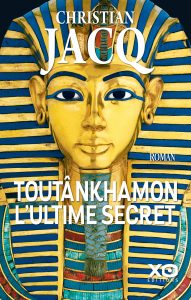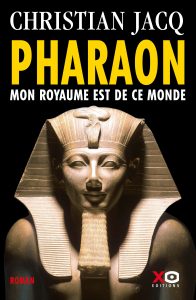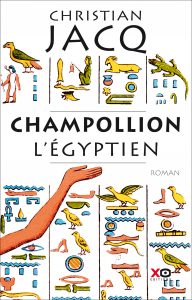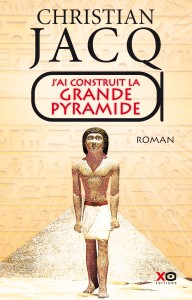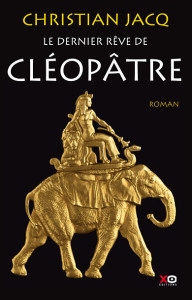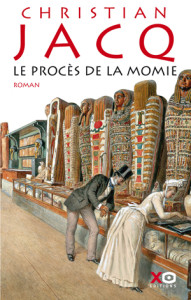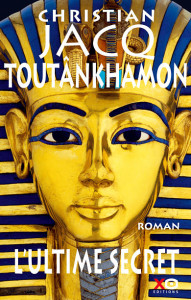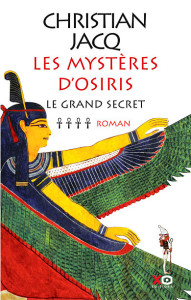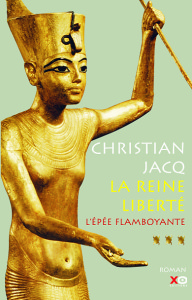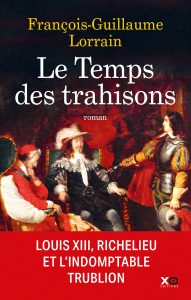Ramses III
The last of the Pharaohs
THE BEST-DOCUMENTED CRIMINAL CONSPIRACY IN EGYPTIAN HISTORY
He was the last of the pharaohs. Twenty years after his illustrious predecessor Ramses II (with whom he had no blood relation), Ramses III (1187–56 BCE) faces challenges that only a king with exceptional stature could overcome. Twice menaced by Libyan invasions and threatened by the Sea Peoples, Ramses III assembles a navy and wins the first naval battle in history.
But the most formidable enemy emerges from within: a dignitary going by the name of The Shadow, who surrounds himself with felons. Their malicious plot includes a secret weapon, black magic, the only kind that can thwart the protection of the Goddess Isis, the Great Royal spouse.
But that’s forgetting the vigilance of the elder in charge of the king’s security, and his assistant, the North Wind donkey. In extremis, the plotters are arrested and condemned to death. A brilliant strategist, the pharaoh goes on to ensure peace for his subjects and oversees the planting of thousands of trees.
Invasions & naval warfare & conspiracies
With Isis, the Great Royal Wife, Ramses III faced all the crisis
The last Great Monarch of the New Kingdom
Author's interview
Ramses III was the last great pharaoh of Ancient Egypt. of no relation to Ramses II, and ascending the throne twenty-six years after the end of Ramses II’s reign.
When Ramses II’s rule ended in 1212 BCE, Egypt was at the height of its wealth and power. By the time he ascended the throne, twenty-six years after Ramses II’s rule ended, Egypt had suffered crises, especially economic ones, but most of all, the land was threatened by invaders until then held at bay. There are no biographies of the pharaohs because these life stories didn’t interest the ancient Egyptians. The written record we do have tells of their actions, emphasizing the adherence to rituals deemed essential to assure the country’s unity. Ramses III rose to supreme power around the age of forty and reigned for around thirty years. He was an experienced dignitary and yet, nothing presaged his rise to pharaoh. By accepting the responsibility, with the permission of his wife –who would become a formidable queen– he makes a surprising decision: to align himself with the reign of Ramses II, whom he admires. And so he becomes third in the line of Ramses, “Sons of the Light”. He was a determined leader, courageous, who maintained tradition, was aware of dangers, and who cared a lot about honoring the prestigious name he carried.
Ramses III’s reign was brutal, with three assassination attempts, and the very real threat of the violent Sea Peoples.
At that time, the Middle East was in full efflorescence. But in Egypt, the peace assured by Ramses II was a distant memory. Because of all its riches, Egypt was the envy of many different foreign populations that united under the name “The Sea Peoples”. Under the command of tribal chiefs, they decided to invade Egypt simultaneously by land and sea. Well-informed and forward-thinking, Ramses III creates a new kind of army: a marine fleet. This is how he prepared the country for the first naval battle in history, not confronting the enemy at sea but leading it into the canals of the Nile.
He also had to confront traitors and felons. Tell us about that…
Despite Ramses III’s absolute belief in protecting his country, his noble character, and his vision of the future, the way he was running the country didn’t make everyone in his court happy. Ambitions quietly fomented and the struggle for succession began as he advanced in age. As the years went by, the plots continued to thicken. However, the treasonous attempts failed as long as the ruler’s power remained intact.
Uunder his reign, women were very respected, and numerous laws protected them. What status did women have in the society at large?
Ramses III could rightly boast of a significant accomplishment: a woman could walk alone freely and safely under his reign. Since the earliest dynasties, Egyptian women married the man of their choice, used contraception, left their worldly goods to whomever they wanted to, were protected in the case of divorce and could ascend to various positions of power, including supreme power. Let’s not forget that the word “Pharaoh” designates a couple, made up of the king and the Great Royal Spouse. The Great Royal Spouse had a palace of her own and had a significant role in diplomatic affairs.
What resources did you have access to write this novel?
There is ample documentation when it comes to the reign of Ramses III. As to rituals, his tomb in the Valley of the Kings and his Medinet-Habou temple illustrate the notable events of his reign, as does Karnak. Not to mention the longest papyrus known (42 meters long), the “Harris papyrus, the ” Judicial Papyrus of Turin” which recounts the conspiracies that occurred during the pharaoh’s reign.
lire toute l’interview





